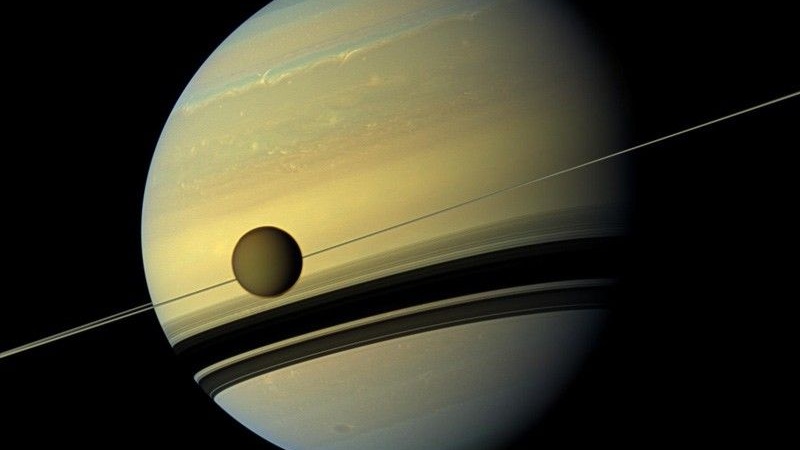Antarctic Microbes Handle Mars-Like Conditions
Breaking space news, the latest updates on rocket launches, skywatching events and more!
You are now subscribed
Your newsletter sign-up was successful
Want to add more newsletters?

Delivered daily
Daily Newsletter
Breaking space news, the latest updates on rocket launches, skywatching events and more!

Once a month
Watch This Space
Sign up to our monthly entertainment newsletter to keep up with all our coverage of the latest sci-fi and space movies, tv shows, games and books.

Once a week
Night Sky This Week
Discover this week's must-see night sky events, moon phases, and stunning astrophotos. Sign up for our skywatching newsletter and explore the universe with us!

Twice a month
Strange New Words
Space.com's Sci-Fi Reader's Club. Read a sci-fi short story every month and join a virtual community of fellow science fiction fans!
Lab experiments with primitive microbes taken from anAntarctic lake have shown that the hardy single-celled organisms can tolerateat least the warmest of the frigid temperatures found on Mars.
And they found that these species of microorganisms"huddled" together in colder temperatures to form a chemically linkedunit called a biofilm. The finding marks the first time this phenomenon hasbeen detected in the Antarctic species of so-called extremophiles.
The findings provide more evidence for the ideas that liquidfound beneath Mars' surface could harbor microbial life and that life could exist elsewhere in the solar system and galaxy, which is generally incrediblycold.
Hardy creatures
Scientists with the Maryland Astrobiology Consortium focusedon two species of cold-adapted microbes. One, called Halorubrum lacusprofundi,is highly salt-tolerant. The other, Methanococcoides burtonii, canlive without oxygen and thrives on methane. (H. lacusprofundi is a typeof microbe that was discovered first in spoiled foods that had been salted forpreservation).
Both microbes are types of Archaea,one of the three major types of life along with Bacteria (another class ofmicrobes) and Eukaryotes (a group that includes animals, plants, fungi and Protists,e.g. paramecium, algae, protozoa and slime molds). Archaea might be able tosurvive in many places in the universe beyond Earth, including some of the morethan 180 extrasolarplanets detected in the past decade, or on their terrestrial moons.
The team, led by Shiladitya DasSarmaof the University of Maryland Biotechnology Institute, part of the consortium,grew the microbes and found they survived and reproduced at 30 and 28 degreesFahrenheit (about -1 and -2 degrees Celsius), respectively, just below thefreezing point of water.
Breaking space news, the latest updates on rocket launches, skywatching events and more!
"We have extended the lowertemperature limits for these species by several degrees," DasSarma said."We had a limited amount of time to grow the organisms in culture, on theorder of months. If we could extend the growth time, I think we could lower thetemperatures at which they can survive even more."
Slow it down
The cold temperatures of spacecould result in very slow growth, with generation times possibly longer thanthe average humanlifespan, DasSarma said, and this forces a reconsideration of the durationof astrobiology laboratory experiments. "For example, is it living if onetakes a century to replicate or divide?" he said.
H. lacusprofundi was chosenfor the experiments because they could possibly thrive in the salty waterthought to exist below Mars' surface, which can remain liquid at temperatureswell below 32 degrees Fahrenheit. M. burtonnii was chosen because itcould survive on a planet lacking oxygen, such as Mars.
The lab-grown archaea alsoadapted to the cold by aggregating to form biofilms or microbial mats, like theslimy plaque that accumulates on your teeth. Aggregating to form a mat or biofilmallows microbes to share nutrients and genetic material.
"The cold-adaptedmicroorganisms studied in this investigation have not been observed to form biofilmsin the past, and so the observation of biofilmsin the cold was a surprise," DasSarma told SPACE.com.
The genomes for these twospecies of archaea have already been partially sequenced. Their full sequenceswill soon be available, allowing scientists to learn which genes generateproteins, such as cold-shock proteins, that help the microbes adapt to extremecold.
The findings were publishedonline in the International Journal of Astrobiology.
TenAlien Encounters Debunked
Wild Things: The Most Extreme Creatures
Top 10 Listof Habitable Stars to Guide Search
VIDEO:Extreme Living: On Earth and Other Worlds

Robin Lloyd was a senior editor at Space.com and Live Science from 2007 to 2009. She holds a B.A. degree in sociology from Smith College and a Ph.D. and M.A. degree in sociology from the University of California at Santa Barbara. She is currently a freelance science writer based in New York City and a contributing editor at Scientific American, as well as an adjunct professor at New York University's Science, Health and Environmental Reporting Program.
